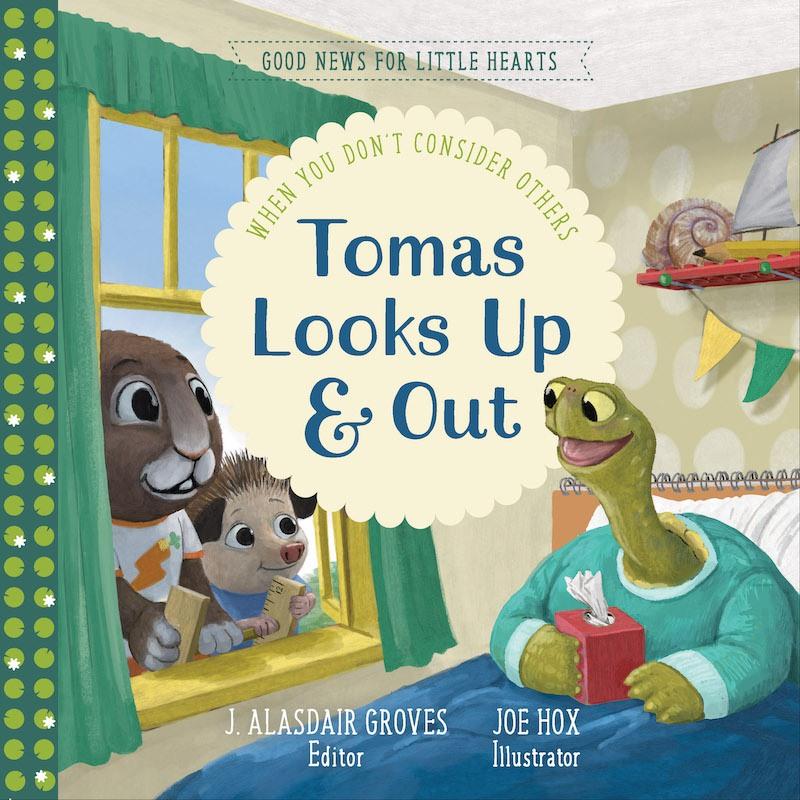Transcript
I am going to give four thoughts on this. It's one I've thought a fair amount about, as a father of three children. It's something I've thought about as the son of parents, but especially of a mother who helped me do this in really significant ways, and I think my mom's input in my life is part of why I'm a counselor today. How do you help kids care more about others? First thought, and probably the most important in terms of the action step regularly, is lead by example. Share what's going on in your mind, in your life, in your heart. How are you being impacted by what's going on around you? So just giving your child a regular window into "Hey, people have feelings and they have responses and they have reactions." So just like, "Such and such happened and that made me sad," or "I was really happy that..." So just giving children access to your inner world in whatever language. You don't have to get all weird and adopt some new hyper-emotional language if that's not who you are. And you're welcome to keep using lots of emotional language if that is who you are. I just mean talk to your kids about how you're experiencing your life and your world, and in particular, if there are places where you see them not thinking about others or not thinking about you, giving them access to that, not a manipulative way where you're like, well, how do you think I felt? Blah, blah, blah. There's a way to invite children to realize, you know what? Other people are going to have different feelings than they do. Other people have different desires, different perspectives, different concerns. So lead by example, sharing your own heart, sharing your own experience of life.
Number two, you lead by example in reflecting on others. Philippians 2, a fairly well-known passage, talks about how Jesus does this incredible, unbelievable humility with us, and he doesn't consider all the glories of heaven and being God with all the privilege of that. He comes down, he takes the nature of a servant. He's made in human likeness. He dies on a cross, and that's to his glory. But the phrases right before that are essentially, look to others ahead of yourself, consider others more important, look at other people. And so the more that you can lead by example in that, the more that you can be thinking about other people and talking about, "You know, I think so-and-so might be feeling such and such. I think they might be hoping for... this might be hard for them... I think this would probably really be meaningful to them..." Those kinds of comments—and if you find yourself struggling like, well, I never think about anybody that way, then that takes us to the most helpful thing you can do, which is begin yourself to pursue a perspective of knowing how is it for someone else? How are they? What are they thinking, feeling, looking for, hoping, doing, what is on their heart?
So lead by example, lead by example in reflecting on others, and then ask your kids how others might be feeling. So if the first aspects are sort of you driven, where you are the one putting the information on the table and putting data out there in the conversation, there's also a place to invite your child to reflect. "How do you think so-and-so felt?" I remember that was the breakthrough moment for me. I was six years old. I was playing wiffleball in the backyard with my friend. We came in and I was just, I was kind of a jerk about it: "Well, I'm feeling pretty happy because my team won" and blah, blah, blah, right there in front of my friend. And I remember my mom just in that moment saying, "How do you think your friend felt when you said that?" And it was jarring. I wasn't thinking at all about how my friend was feeling at that moment, and the idea that my friend was feeling something about it, and I was pretty quick at the intuition level to go, oh, I don't think he would probably like that. I don't think I would like that. And I was convicted in the moment. All that to say, there is such a rich opportunity just to help a child begin to put themself in someone else's shoes. That's part of putting someone else first. It's the first part of putting someone else first.
Last thing I'll say. Ask and come back to on a regular basis how Jesus feels about your child. The more that you can bring that into conversation, How does Jesus, how does the ultimate other feel about you? What's going on in his mind and his heart? There's nothing like seeing the grace, the heart of love, of compassion, of joy, of grief over sin because he loves you and does not want to see you in sin. That those things are there in his heart toward your child. Those are the things I would most want a child to be seeing through a different set of eyes. And the more you think, How would Jesus feel? the more you're going to be set up to think about how other human beings feel around you, and to have a Christlike perspective on and toward them.


